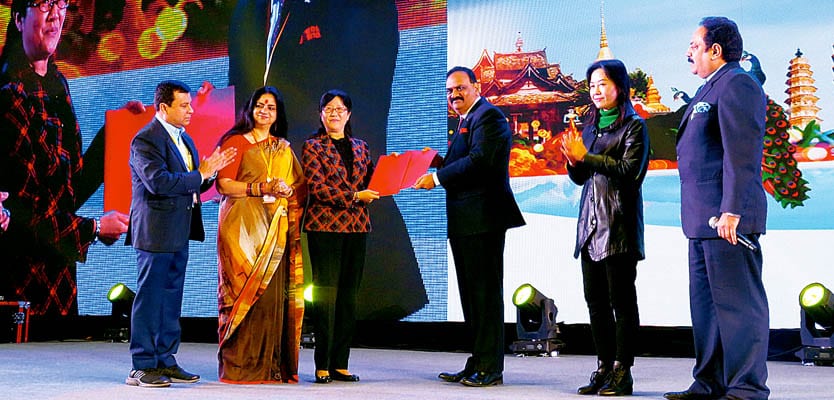Going Beyond Boundaries in Kunming
True to its theme, Tourism Beyond Boundaries, TAAI’s 65th annual convention crossed the India border (just two and a half hours from Kolkata) to Kunming, capital of the Yunnan Province in China. A mutually beneficial MoU with the YPTDC and a strong push towards tourism cooperation between the two countries made TAAI’s first convention in China truly a historic one. By Steena Joy
The 65th annual convention of the Travel Agents Association of India was an historic one as it was the first time the association was organising it in China. The picturesque Kunming was the locale for the convention. Speaking at the pre event press briefing, Sunil Kumar, president, TAAI said, “This convention being organised in association with Yunnan Provincial Tourism Development Commission (YPTDC), China, will herald a new level of tourism ties between the two nations. Around 20 students of the English Club of Yunnan University are voluteering at the convention. There is a large yoga institute in Kunming which was inaugurated by PM Narendra Modi. One can see here the connect between India and China. There are already four daily flights each between Delhi-Kunming and Kolkata-Kunming. The presitigious MoU signed between TAAI and the YPTDC at the convention will only add to that connect and take bilateral ties even beyond the convention.” Around 485 TAAI delegates attended the convention.
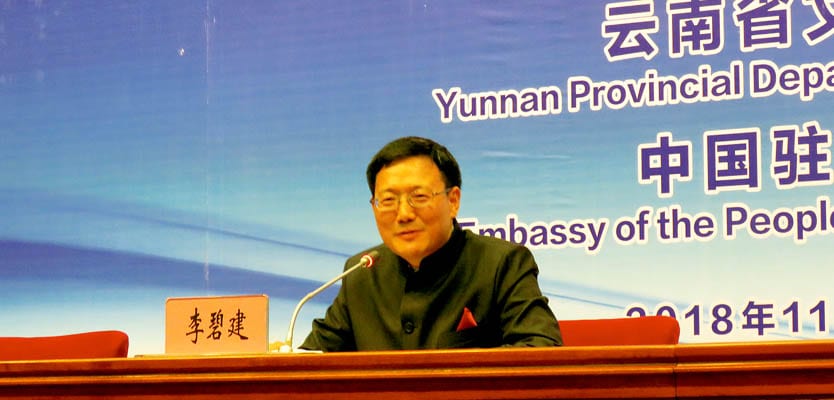 The opening ceremony of the convention was held at the Haigeng Convention Centre in Kunming. The three-day convention was inaugurated by the vice governor of Yunnan Province, Li Malin in the presence of He Ligui, Director General of Tourism of Yunnan Province; Li Bijian, Minister and DCM, Embassy of China in New Delhi. Speaking at the opening Li Bijian said, ““Yunnan is an important tourism province in China. After many years of efforts, Yunnan has increased its visibility. Tourism contributes 7.5 per cent of our GDP. India is an important source market for China tourism and vice versa. So our two countries enjoy bright prospects for co-operation. We would like to play an important role in tourism cooperation between the two countries. With our continued efforts,our tourism co-operation will yield fruitful results. We can learn from each other and we can fly together.”
The opening ceremony of the convention was held at the Haigeng Convention Centre in Kunming. The three-day convention was inaugurated by the vice governor of Yunnan Province, Li Malin in the presence of He Ligui, Director General of Tourism of Yunnan Province; Li Bijian, Minister and DCM, Embassy of China in New Delhi. Speaking at the opening Li Bijian said, ““Yunnan is an important tourism province in China. After many years of efforts, Yunnan has increased its visibility. Tourism contributes 7.5 per cent of our GDP. India is an important source market for China tourism and vice versa. So our two countries enjoy bright prospects for co-operation. We would like to play an important role in tourism cooperation between the two countries. With our continued efforts,our tourism co-operation will yield fruitful results. We can learn from each other and we can fly together.”
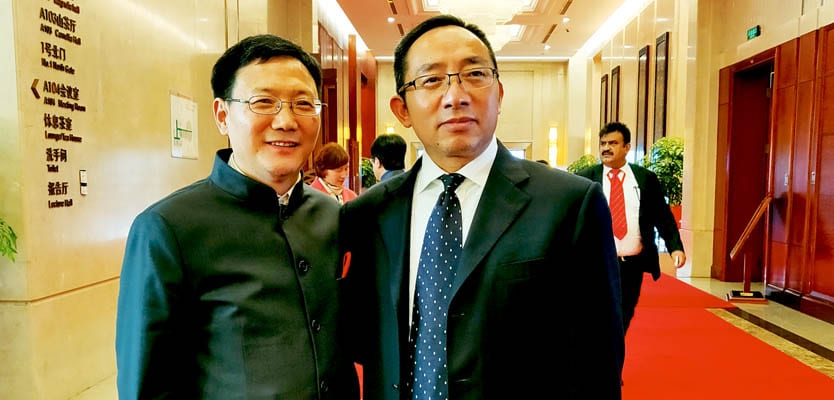 According to Li Malin, “Both China and India are developing countries with rapid economic development, increased living standards of the people and a fast growing middle-class which have created golden opportunities for tourism development. India has emerged as an important source market for China, while China is the potential market to send travellers to India. Between India and China, there is a tourist market which is broad enough for both the sides to explore.”
According to Li Malin, “Both China and India are developing countries with rapid economic development, increased living standards of the people and a fast growing middle-class which have created golden opportunities for tourism development. India has emerged as an important source market for China, while China is the potential market to send travellers to India. Between India and China, there is a tourist market which is broad enough for both the sides to explore.”
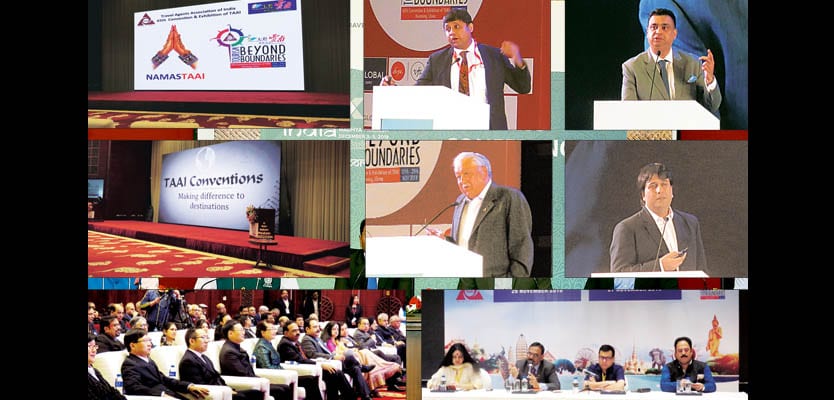 A combination of Chinese and Indian ethnicity and culture dominated the entertainment at Kunming. TAAI’s B2B India Travel Trade Expo (ITTE), had almost 50 per cent of the stalls were of Chinese suppliers. Tee off of the second TAAI Golf Tournament was held on November 27, 2018 at the Kunming Dianchi Lake View Golf Club. The two teams – players from India and China played to win the Sino-India TAAI Uni Top Golf Cup.
A combination of Chinese and Indian ethnicity and culture dominated the entertainment at Kunming. TAAI’s B2B India Travel Trade Expo (ITTE), had almost 50 per cent of the stalls were of Chinese suppliers. Tee off of the second TAAI Golf Tournament was held on November 27, 2018 at the Kunming Dianchi Lake View Golf Club. The two teams – players from India and China played to win the Sino-India TAAI Uni Top Golf Cup.
Knowledge sessions
InterContinental Hotel Kunming, located close to the most famous Dianchi Lake, was the venue for the two days of Knowledge Sessions. The first session was by Prof John Koldowski, former deputy CEO, PATA and presently special advisor to CEO, PATA and professor of tourism at LSNU, China.
He said, “A Russian dance troupe Mayuri pays homage to Lord Ganesha for an India travel agents convention in China…this is what tourism beyond boundaries is all about.”
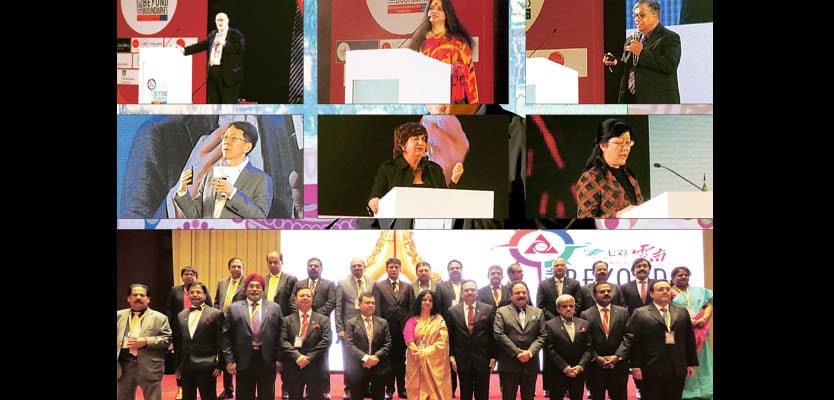 He cautioned tarvel agents by saying, “We can look into the future but we need to be prepared for what it brings. The light at the end of the tunnel could be a train coming towards you!”
He cautioned tarvel agents by saying, “We can look into the future but we need to be prepared for what it brings. The light at the end of the tunnel could be a train coming towards you!”
Tourism receipts are falling from US$ 1036 to 2018 estimated US$ 891. According to UNWTO. Foreign arrivals into India has shown a CAGR of 10 per cent from 2013 to 2018 and is expected to show a CAGR of 10.9 per cent between 2018 to 2023. Prof Koldowski said that a mindset change is beyond mental borders: 19 million visitors into India in 2023 or one special visitor 19 million times? He urged travel agents to adopt and develop a Service Dominant Logic (SDL) Approach and to have an active social media marketing strategy.
While Kapil Bhatia, executive chairman, Interglobe in his industry insights advised TAAI members to have an open hearted approach when selling China to their customers, Rodney D’Cruz, head, IATA India spoke about the New Gen ISS and its impact.
The second day of the convention began with a knowledge session on Digital Marketing by George Cao, co-founder and CEO, Dragon Trail Interactive. He said that there has been a paradigm shift from Search and Browse to Curate and Deliver. Customers have moved from agents to web/mobile search to chatbots or AI like Alexa, Echo and Google Assistant to try to find the travel products they need by themselves. He then elucidated on how agents in China are fighting this onslaught of OTAs and AI by using apps like We Chat. “We Chat can be used not just for consumer marketing but also B2B marketing, for training and certification and online roadshows. 97 per cent of Chinese millennials share their travel experiences online usually through WeChat Moments. He advised: follow digital trends, experiment with new digital tools and platforms, create content online serve the entire journey and keep building trust.
Lavonne Wittman, president, Skal International spoke on the power of symbiotic relationships to further enhance Tourism Beyond Boundaries. She said, “Customers today have eclectic tastes and different needs. As you are creating experiences for multi-generational segments, you need to have an intimate understanding of your customer’s needs.”
Ashish Gupta, CEO, FAITH said, “Super segmentation is a good option. Keep discovering what your area of focus is.” He also recommended video branding of travel, use of more visuals responsible product planning and basic automation like the Cruz robot at Kunming airport. He concluded by saying, “We should not be travel agents of yesterday but rather tourism agents of today.”
Sunil Kumar suggested that TAAI will take the initiative of selecting top 100 agents of the association and with the support of Prof Koldowski and Cao, it will identify top 100 Chinese travel agents and together form a Co-operation Forum with the government’s permission for both outbound and inbound tourism to promote sustainable tourism.
Carl Vaz, chairman and CEO, Charson Advisory Services gave a presentation on Optimising Travel for the small and medium sized travel agencies. He said, “Travel agents use your size to your advantage. Offer dynamic packaging to your customers like great ‘selfie’ locations, best attractions/sites that are free, etc. Use technology to make your own profile with Vlogs, Podcasts, etc. Go that ‘extra mile’ for your customer.”
He cautioned associations about being outmaneuvered, “You need to be ‘guardians’ of the travel and tourism eco system. You need to engage with stakeholders beyond the immediate boundaries of travel. Engage with hospitality services and go with the flow of our Prime Minister’s HR and Skill Development agenda.”
The last Knowledge Session was by Kapil Kaul, CEO India and ME, CAPA who spoke on the airline industry. He said, “Global airline profitability is at record levels – they are meeting cost of capital after more than 50 years with North America accounting for 45 per cent of global profits. But global airlines continue to struggle. Consolidation is the key.” He stated that aviation’s centre of gravity is shifting to Asia Pacific. “Airlines will be more like technology companies that happen to operate airplanes. India is THE aviation market for the 21st century,” he said.
Kaul felt that the profitability and sustainability of travel agents will require a complete redesign of their business model and consolidation of the industry. He suggested that TAAI should establish an online market place to distribute non-air products on a common platform following a non-profit SITA type model, using the margins to invest in technology and promote the benefits of using travel agents for travel decisions.
Post and pre tours were arranged by TAAI to Dali, Yuxi and Lijiang. In addition, there were city tours and tours to the Sleeping Beauty in the Western mountains and the Stone Forest and Caves, karst formation.

